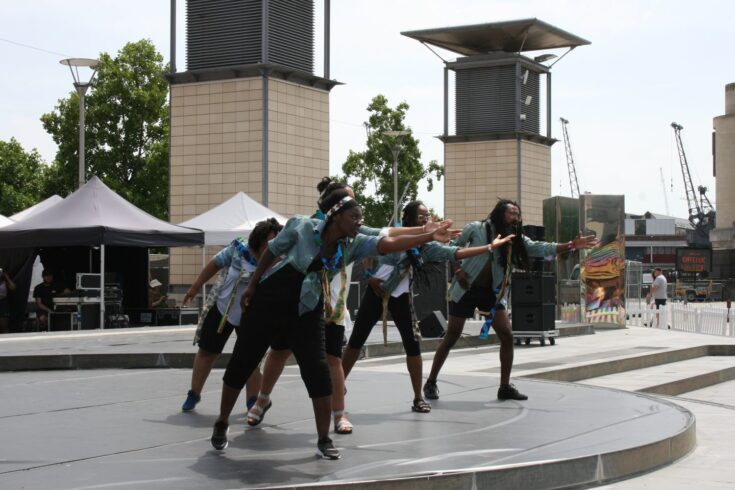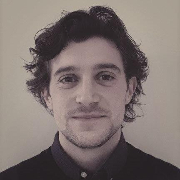Two and a half years ago we gave £1.46 million in funding for researchers to work with the public as equal partners and produce new knowledge about pressing topics for society, ranging from mental health to air quality in homes. The five projects in the UK Research and Innovation (UKRI) Citizen Science Collaboration Grants (CSCG) programme span subjects including history, education and environmental science. As such, these projects are part of a widening out of ‘citizen science’ to explore how participatory approaches can be valuable right across research disciplines.
This programme is part of UKRI’s ambition to value diverse forms of knowledge and break down the barriers between research and innovation and society. In this case, we are supporting the involvement of the public, particularly those historically underrepresented, directly in the research process.
Value to all involved
As we take stock of what the projects have achieved so far, we can see the rich benefits of having more time, space and resources for researchers and the public to collaborate closely. As our previous ‘citizen science’ scheme showed, involving the public has vast benefits for research, from the collection of new data through to steering the research design and the co-production of new knowledge. The projects funded through CSCG highlight the value of incorporating a breadth of experiences and viewpoints into the research process beyond academia. The sense of a shared endeavour – connecting people from different backgrounds, ages and sectors – has emerged as a primary benefit for everyone involved.
In Ancient History, Contemporary Belonging, young people of migrant background carried out new archival research and drew on their own lived experiences to creatively re-tell the stories of objects on display in museums. The project enabled the young people to develop new skills and to explore artefacts in connection with their own heritage: as one person put it, “to delve into my Middle Eastern roots [which] creatively grow inside of me”. Furthermore, they could critique the treatment of these objects throughout their journey from their place of origin to their museum display today. Through this they were able to challenge exclusionary narratives about migrants in the UK. For the researchers, in addition to new knowledge about the objects, they’ve adopted co-production and participatory arts-based practices in the discipline of ancient history, and utilised ancient history and heritage in migrant studies.
In HOMEs under the microscope people across Bristol and Bradford have been investigating the presence of airborne microplastics in their homes. By producing data about people’s homes that has never been accessed before, a picture is emerging of where microplastic particles come from and the extent of the ‘microplastics crisis’. The citizen scientists have been able to get new information about their and their families’ living environment. For example, the project findings show that bedrooms have the most fibres, followed by bathrooms. Citizens have also been motivated by doing something that “can really make a difference” to scientific understanding and how it feeds into policymaking. For the researchers, many of whom were new to this participatory approach, there has been a rich learning process about involving people not only in data collection but in the co-design and co-creation of the research itself.
Video credit: UKRI
Video transcript and on-screen captions are available by watching on YouTube.
The barriers in the system
As well as the benefits, the projects are highlighting the many challenges of working in this way. The emotional and ethical considerations when collaborating with the public reinforce those findings from other participatory research programmes. Institutional research ethics and finance are examples of specific barriers in the system that form part of a wider problem, which is increasingly recognised (PDF, 325KB), about how public engagement is rewarded and supported across the sector.
Crucially for us, the programme has provided insights into what funders can do to better support this way of working. These insights are part of a body of evidence that informed the development of the new UKRI public engagement strategy and continue to inform how we deliver against it.
When we set up this citizen science funding opportunity in 2021, we wanted to build in flexibility to enable payment of non-university partners and public participants. We knew from previous work that this is important for building and sustaining genuine university-community relationships. However, UKRI’s systems were not set up to enable us to do this in the way we wanted to – something we are working to address.
We have since explored other ways of funding that enable partnerships between communities and universities to be established much more equitably. This includes partnering with third sector organisations whose systems are set up to distribute funding to grassroots community organisations. Our Community Knowledge Fund, a partnership with The Young Foundation, directly funds communities to lead on research exploring issues of importance to them. This fund recently announced 12 projects that will be supported over the next 12 months. The lessons we learn from this fund and the CSCG are helping us to explore how we can support more diverse people and organisations to deliver research and generate knowledge.
CSCG continues to challenge us to consider what the research and innovation (R&I) system needs to invest in truly equitable public partnerships and addresses entrenched power imbalances. In response to feedback from the projects, we have provided additional funds to enable them to build on the relationships and trust they have established with their partners and explore what they might do together next. The learnings from this are feeding into our wider funding design for research where equitable relationships between communities, universities and partners is key.
Sharing our learning with you
Throughout the lifetime of the funding, the projects have been supported by our partners, the Institute for Community Studies, who have created spaces for the projects to come together as a cohort to learn from other experts, offer peer support and share best practice. Together they have explored what does and doesn’t work across a broad range of participatory projects, and also reveal what support is needed for everyone involved. This also enabled us at UKRI to have an open and honest dialogue with the projects, ensuring the projects can share with us not only their successes but also the challenges, failures and shifts in their plans. All this has been essential to our learning, and we are grateful to the projects for trusting in this process and being so open with us.
Further information
We want to open up this discussion to others and so we are producing a series of outputs and events over the coming months and we’re keen to hear your thoughts. Visit our programme page to find out more.
Watch: ‘What is citizen science’ – this video explores what ‘citizen science’ means, and how it’s changing the way that research is done.
In-depth discussion papers on four thematic areas coming out of the learning:
- experiences – what it feels like to be involved in a ‘citizen science’ research project: from the perspective of ‘professional’, ’academic’ or ‘citizen’ researchers, and others
- ethics – ethical dilemmas faced in ‘citizen science’ and how these interact with bureaucratic systems (to be published)
- partnerships – how academic teams have collaborated and built partnerships with a range of organisations and stakeholders as part of ‘citizen science’ projects (to be published)
- impact – considerations for research impact related to ‘citizen science’ (to be published)
We hope you can join us as we explore the benefits and challenges of ‘citizen science’ and other participatory approaches together.






